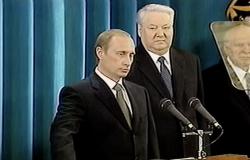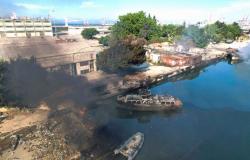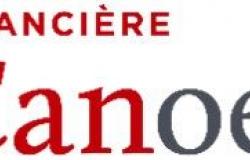In the grand theater of contemporary geopolitics, a fascinating genre of actors stands out, both for their arrogance and their vulnerability. These are the oil rentier states, whose diplomacy is a strange dance between dependence and the illusion of power.
They are like those people who believe that you can buy love with bills, except that here, love is replaced by wedding rings, and bills by petrodollars. But what happens when the annuity disappears or the market falters? All that remains is oil in the veins and dollars in the brains, resulting in diplomacy based on very simple equations: how much it costs and how long it lasts.
Crude oil, crude reflection
In these countries, natural resources seem to dictate not only domestic policies, but also international strategies. During the good years, when oil flirted with 100 dollars per barrel, leaders transformed themselves into architects of predatory diplomacy: strategic alliances, financing of prestigious projects, purchased with billions of dollars. Oil becomes an instrument of power, a currency of exchange which, paradoxically, often ends up turning against those who believe in its stability.
But as soon as prices fall, the facade collapses. The influence acquired through these juicy contracts disappears as quickly as a shower of sand in the desert. The millions invested in temporary partnerships are proving to be as volatile as the resources they are supposed to preserve. Diplomacy based on petrodollars does not last over time; it is a relationship of subordination, always fragile, always dependent.
When pipelines replace diplomats
Let’s take a moment to observe the diplomacy of these states. During times of abundance, oil acts as a crown, and leaders set themselves up as modern princes, ready to buy the favors of more powerful or more necessary allies. A signature here, a check there, and suddenly the international scene seems under their control. But behind the smiles and handshakes lies a less glamorous truth: the “diplomacy” of these countries often relies on only one resource, and it is vulnerable to the vagaries of a market that we cannot control.
In times of economic crisis or falling prices, these countries find themselves begging for military or diplomatic support. The great irony is that the source of their power is oil, but it does not allow them to build lasting diplomatic power. The pipelines they cherish so much replace diplomats, and yet they remain incapable of building real geopolitical influence.
The diplomacy of the transaction
There is no diplomacy more cynical than that of pure transaction. Where other countries seek influence based on shared values or lasting strategic alliances, petrodollar diplomacy is a game of numbers and contracts.
A promise of infrastructure here, campaign funding there, all in exchange for “loyalty.” But this loyalty has no solid basis. It is above all a product of oil revenue, a substitute product for a true strategic vision.
Far from building lasting relationships of trust, this diplomacy transforms the foreigner into a temporary partner, an interlocutor who must be flattered to keep him under control. But these “partnerships” crumble as soon as money becomes scarce. Prestige projects, diplomatic summits, investments in grandiose infrastructures are never more than smokescreens aimed at masking a deeper weakness: the absence of an autonomous and sustainable geopolitical strategy.
When oil is lacking, brains waver
The real tragedy of this petrodollar diplomacy is that it prevents any real progress. It transforms the management of a State into a race for rent. This model encourages elites to maximize the use of resources without ever thinking about what comes next. Because when oil finally runs out – and everyone knows that it will run out one day – all that remains is rout.
Attempts to diversify are often opportunistic or superficial impulses, devoid of long-term vision. Sectors such as tourism, agriculture or technology are too often neglected in favor of immediate projects which only serve to maintain the facade. Reforms that could really allow these states to reinvent themselves, to build a more robust diplomacy more based on balanced and lasting relations, are being put aside. Therein lies the trap: the money and influence that oil offers are just an illusion of power.
Rent as a strategic poison
Petrodollar diplomacy is the art of selling one’s soul with every barrel extracted. It is a model that favors immediate gains but ignores the need to build lasting influence, based on values, solid institutions and common projects. It is a system that transforms foreign policy into simple asset management, where opportunity trumps strategy.
Thus, while some leaders sing the praises of oil and immediate wealth, history shows that these rents, however generous they may be, end up making them dependent, vulnerable and incapable of reinventing themselves. True power lies not in how much oil a country can export, but in its ability to see beyond that resource to build a sustainable diplomatic future. The legacy of oil diplomacy will perhaps not be that of barrels, but of the thinking that was able to free itself from this addiction.
A quote that sums up this reflection well could be that of the philosopher and economist Albert Hirschman: “The biggest trap a society can fall into is believing that wealth is a substitute for true power: that of innovation , ideas and institutions. »
This quote perfectly illustrates the paradox of rentier states: despite their wealth in natural resources, their inability to invest in sustainable structures and intelligent geopolitical strategies prevent them from truly building lasting and autonomous influence.
Dr A. Boumezrag





